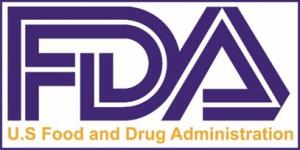Newsletter
Our newsletter is sent at the end of every month. It included new resources, upcoming events, and announcements about NCR meetings. Sign up here, if you'd like to join our mailing list (or use the same link to remove your email from the list). We send approximately three emails per month.
Resources Developed by NCR FSMA
New Fact Sheet
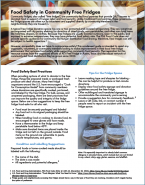 “Food Safety in Community Free Fridges” covers best practices for freely-available refrigerators. Because free fridges are usually located outdoors, open to the public, and exposed to extreme temperatures, they may have potential food safety risks. As the document says, “Accessibility does not have to compromise safety!” The factsheet discusses Community Engagement and Food Safety Culture, Common Risks, Cleaning and Monitoring, and Labeling. It offers best practices for accepting and storing donations and has a list of resources to consult for more information.
“Food Safety in Community Free Fridges” covers best practices for freely-available refrigerators. Because free fridges are usually located outdoors, open to the public, and exposed to extreme temperatures, they may have potential food safety risks. As the document says, “Accessibility does not have to compromise safety!” The factsheet discusses Community Engagement and Food Safety Culture, Common Risks, Cleaning and Monitoring, and Labeling. It offers best practices for accepting and storing donations and has a list of resources to consult for more information.
The resource also includes suggestions for how to start a free fridge in your community, starting with the organizing and how often volunteers should clean and inspect the fridge.
Infographics for Growers
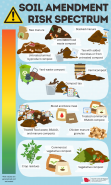
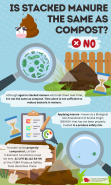
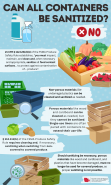 These infographics cover:
These infographics cover:
Designed by Lindsey Pender, an educator from Missouri, these resources are designed to be included in curriculum and training materials as a supplement, or can be used alone to increase grower knowledge and awareness. You can download these PNG files from the NCR FSMA box folder.
Water Testing Resource
- Total Coliform-Positive Well Water Test: Now What. Agricultural water used during harvest and postharvest should be the microbial equivalent of drinking water. Protected ground water normally has no detectable coliform bacteria in 100 mL. Presence of total coliforms indicates vulnerability to surface intrusion. Presence of generic E. coli indicates that feces has intruded. Corrective actions in response to total coliform-positive well water can vary; depending on the use of the water it may be important to understand and address the conditions that led to intrusion. If the total coliforms in the water include generic E. coli, corrective action is a priority; immediately stop use as drinking water or in contact with produce during harvest and postharvest, then find and resolve the cause.
Employee/Volunteer Training Guides
- Pre-Harvest, Harvest, and Post-Harvest Training Guides for employees and volunteers. You can find versions as a Powerpoint, PDF, or Publisher file. You can adapt the Powerpoints and Publisher files for your own farm.
Scenario Discussions
- Tomato and Salsa Small Group Discussions. This includes a short video, maps of the farm, cleaning logs and records from the farm, and discussion questions.
Fact Sheets
- FSMA Compliant On-Farm Thermophilic Composting: A Safe Way to Enrich the Soil
- Bodily Fluid Clean Up on the Farm
- Domesticated Animals Factsheet- FSMA Produce Safety Rule
- Farm Stands and U-Pick Produce Operations Safety Best Practices
- Federal and State Regulations on Selling Frozen and Dehydrated Foods
- Federal and State Regulations on Selling Jams and Jellies
- FSMA Produce Rule Summary for Midwest Orchards
- Federal and State Regulations on Selling Pickled Vegetables
- FSMA Produce Safety Rule: Dealing with Wildlife
- Ensuring Food Safety: Wineries
- Ensuring Food Safety in the Vineyard: Table Grapes
- Ensuring Food Safety in the Vineyard: Wine Grapes
- FSMA Summary for Hops Growers
- FSMA Human Food Audit Checklist
- Acronyms
- Checklist for Retail Purchasing of Local Produce
- FDA and USDA Organization Charts (just regarding food safety)
Checklists and Exemption Calculators
- Daily Pre-Harvest Checklist (PDF)
- Daily Pre-Harvest Checklist (Excel) ncr_pre-harvest_checklist.xlsx
- Exemption Envelope (front)
- Exemption Envelope (back) We can send you copies of this envelope if you contact us (ncrfsma@iastate.edu).
- Fillable version of Exemption Envelope from K-State
Videos
- Food safety training videos in the Hmong language (subtitles in English). Four videos covering Good Agricultural Practices
Produce Safety Contacts
Do you work with growers near your state border? Do they ask who to contact for land they own/rent across the border? Some of our partners have asked for a quick reference sheet to hand out, especially in situations where they can't get cell reception to search online for a contact person. You can find produce safety contacts for all the bordering states of each of our 12 North Central Region states in this contact reference document. You need to be an NCR partner to access this document, so please let us know if you need access.
Water Testing Labs in the Region
Water testing lab maps are updated by the map owner as needed. Resources that may help you create a map or assist in communication with the laboratories include:
- Michigan State University protocol Creating a Database of Water Quality Testing Labs (September 2018)
- Association of Public Health Laboratories (APHL) Bridges publication Agricultural Water Testing and the FSMA Produce Safety Rule (Summer 2018, page 5)
- APHL Webinar Emerging Issue: Analysis of Agricultural Water and Spent Sprout Irrigation Water (April 2019) and associated Resources List.
Online quizzes about Value Added Products
- Illinois
- Indiana
- Iowa
- Kansas
- Michigan
- Minnesota
- Missouri
- Nebraska
- North Dakota
- Ohio
- South Dakota
- Wisconsin
Resources Developed by Partner Organizations
 |
Food Safety Best Practices for Local Food Entrepreneurs- The purpose of this publication is to provide information about best practices to maintain safety standards for products sold by local food entrepreneurs. Regulations vary in each state, so be aware of your location’s specific requirements. |
 |
The Produce Safety Alliance provides several resources for use in PSA Curriculum classes to help farmers understand and be compliant with the rule. |
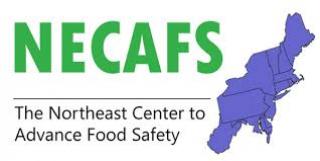 |
The Food Safety Resource Clearinghouse is a curated source of Produce Safety and Preventive Controls for Human Food related resources. Anyone can search and view the resources linked to the clearinghouse by using one or all of the search tools (type, topic, state, and/or keywords). The is a national tool to find supporting materials developed across the country or tools developed in your own state. Resources that have been peer-reviewed are labeled as such. |
|
The Food and Drug Administration (FDA) provides guidance and fact sheets to help processors, farmers, and educators understand and be compliant with the rule. |
Any opinions, findings, conclusions, or recommendations expressed in this publication are those of the author(s) and should not be construed to represent any official USDA or U.S. Government determination or policy.

This work is supported by the Food Safety Outreach Program [grant no. 2018-70020-28877; grant no. 2021-70020-35732; and grant no. 2024-70020-42954] from the USDA National Institute of Food and Agriculture.

